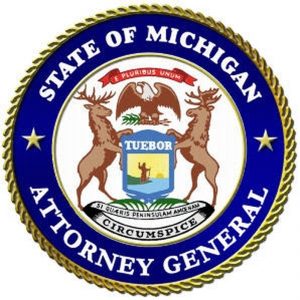 LANSING – Michigan Attorney General Bill Schuette today released an official legal opinion clarifying state law regarding the potential closure of underachieving schools in Detroit by the State School Reform Officer (SRO). The opinion states that under current Michigan law, schools operated by the Detroit Public School Community District are subject to closure before the end of the current school year if they are among the lowest-achieving 5% of all public schools for the immediately preceding 3 school years.
LANSING – Michigan Attorney General Bill Schuette today released an official legal opinion clarifying state law regarding the potential closure of underachieving schools in Detroit by the State School Reform Officer (SRO). The opinion states that under current Michigan law, schools operated by the Detroit Public School Community District are subject to closure before the end of the current school year if they are among the lowest-achieving 5% of all public schools for the immediately preceding 3 school years.
This means that any school currently operated by the Detroit Public School Community District that was on the list of lowest-achieving schools for the 2015-2016, 2014-2015, and 2013-2014 school years is subject to closure.
Once the SRO issues notification of mandatory closure, a school then determines the best time to close before the end of the current school year.
“The law is clear: Michigan parents and their children do not have to be stuck indefinitely in a failing school,” said Schuette. “Detroit students and parents deserve accountability and high performing schools. If a child can’t spell opportunity, they won’t have opportunity.”
In addition, the opinion clarifies that the SRO is required to close schools in accordance with state law, unless closure would result in an unreasonable hardship because there are insufficient other public school options reasonably available. Mandatory closure applies to the lowest-achieving Detroit public schools because they are the only “community district” at this time. Other low-achieving public schools are subject to the SRO’s supervision, with the potential for closure.
In the event of a school closure, students will be re-assigned to another school.
The opinion further clarifies that the SRO’s responsibility applies to both public schools in a community district and public school academies, also known as charter schools, if they have remained in the bottom 5% of schools.
The opinion was written in response to a request by Senate Majority Leader Arlan Meekhof and Speaker of the House Kevin Cotter to clarify section 391(1) of 2016 PA 192. This Attorney General Opinion is a review and interpretation of current Michigan law, and does not include an evaluation of school performance facts or data.



